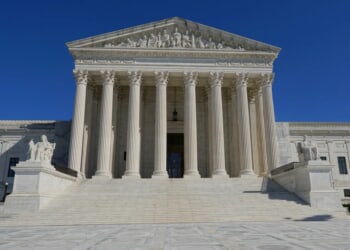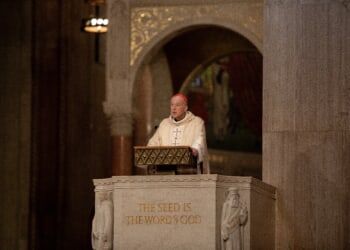The blueprint is familiar. Extremists rebrand, slipping seamlessly from the shadows of militancy into the mainstream of Western activism. They weave narratives of struggle and oppression, claiming moral high ground while continuing to push the same radical agendas under more palatable labels. Dyab Abou Jahjah exemplifies this trend, exposing the dangerous loophole through which extremism cloaks itself in human rights rhetoric.
Leila Khaled, the PFLP terrorist behind two airplane hijackings, was later invited to lecture at Western universities.
A former Hezbollah militant turned European activist, Abou Jahjah has rebranded himself as a defender of the oppressed. However, his ideology remains radical, his tactics subversive, and his goals aligned not with justice but with the delegitimization of Israel and the empowerment of Islamist movements in Europe.
Abou Jahjah’s transformation from militant to media figure follows a well-worn path. Publicly admitting to his Hezbollah training in the 1990s, he later founded the Arab European League (AEL), a group notorious for its antisemitism and calls for Islamic dominance in Europe. Under the banner of activism, AEL excused terrorism, justified attacks on Israel, and spread disinformation aimed at eroding democratic institutions.
Now, under his new creation — the Hind Rajab Foundation (HRF) — he poses as a human rights advocate seeking legal action against Israel. The hypocrisy is stunning: a man who once trained for terrorist war against Israel now presents himself as a global authority on war crimes. HRF, in reality, is a vehicle for legal warfare, one of the latest in a series of organizations that function as soft-power fronts for terrorist-affiliated networks. Recent reports indicate that the HRF has been actively involved in doxxing Israeli soldiers and pursuing legal action against them in foreign states, further highlighting its agenda. See recent stories covering his activity.
Radical Networks Masquerading as Human Rights Groups
The rise of Abou Jahjah mirrors a broader phenomenon — where radical networks operate under the guise of human rights groups, academic institutions, and political advocacy organizations. Groups such as Samidoun, the Popular Front for the Liberation of Palestine (PFLP)-affiliated “prisoner support network,” and the Palestinian Youth Movement (PYM) all follow the same template. These organizations exploit Western institutions, embedding themselves in universities, NGOs, and left-wing political circles where their extremist rhetoric finds fertile ground under the pretense of anti-imperialism and social justice.
The deception follows a calculated structure. These organizations receive funding from international NGOs and humanitarian initiatives, funneling resources to radical causes while maintaining plausible deniability. They share leadership figures and operational networks with terrorist groups, serving as intermediaries between radical activism and direct terrorist action. University campuses become prime recruitment grounds, where naive students — seeded with Critical Theory and ideas such as “Settler Colonialism” from their professors — are drawn into extremist ideology.
From Campus Protests to Extremism: The Mahmoud Khalil Case
The dangerous fusion of radical activism and soft-power terror tactics is particularly evident in how these groups leverage Western legal systems. Much like Abou Jahjah’s HRF, these entities engage in “lawfare,” using international courts to harass democratic states while protecting actual terrorist operatives under the shield of legal advocacy. It is a battle fought not with bombs, but with lawsuits; not with rifles, but with resolutions and tribunals designed to delegitimize Western democracies from within.
History is filled with examples of extremists who underwent the same transformation. Leila Khaled, the PFLP terrorist behind two airplane hijackings, was later invited to lecture at Western universities under the guise of academic discourse. Sami Al-Arian, once a respected professor, was exposed as a direct fundraiser for Palestinian Islamic Jihad. Rachid Ghannouchi, a Tunisian Islamist leader, rebranded as a democrat while continuing to support terrorist-linked groups across North Africa. The strategy never changes: sanitize, rebrand, infiltrate.
The consequences of allowing this deception to persist are severe. In Europe, radical Islamist movements grow stronger under the banner of multiculturalism, turning cities into battlegrounds of ideological warfare. In the United States, campuses are flooded with antisemitic rhetoric, promoted under the guise of “anti-Zionism,” normalizing extremism and isolating Jewish students. Governments, fearful of appearing intolerant, hesitate to act against these figures, giving them free rein to manipulate public discourse.
But the warning signs are clear. If we allow figures like Abou Jahjah to operate unchecked, we set the stage for a future where terrorism is no longer fought in distant battlefields, but embedded within our legal systems, media, and academic institutions. The Trump administration has taken decisive steps in confronting this issue — defunding UNRWA, shutting down terrorist-linked charities, and imposing visa restrictions on extremists masquerading as activists. The fight against terror must now extend beyond traditional security measures to dismantling the deceptive frameworks these radicals use to thrive.
Abou Jahjah is not a voice for justice. He is an agent of ideological subversion, a terrorist who swapped his fatigues for a suit, and whose battlefield is now the courtrooms and media platforms of the West. Recognizing his deception is only the first step — ensuring he and those like him are denied the legitimacy they seek must be the next. The war against terrorism is no longer just fought with intelligence and counterterrorism operations — it is a battle for truth against the greatest weapon extremists have: the ability to masquerade as victims while laying the groundwork for the next wave of radicalization.
READ MORE from Kevin Cohen:
Trump Is Expanding Travel Bans in the Age of AI
The Arrest of Columbia University’s Mahmoud Khalil: Unmasking Campus Radicalism





![Trump's Admin Guts Another ‘Rogue Government Agency with Zero Accountability’ [WATCH]](https://www.right2024.com/wp-content/uploads/2025/03/Trumps-Admin-Guts-Another-‘Rogue-Government-Agency-with-Zero-Accountability-350x250.jpg)



![‘We All Owe Him (Elon) a Huge Debt of Gratitude’ [WATCH]](https://www.right2024.com/wp-content/uploads/2025/03/‘We-All-Owe-Him-Elon-a-Huge-Debt-of-Gratitude-350x250.jpg)







